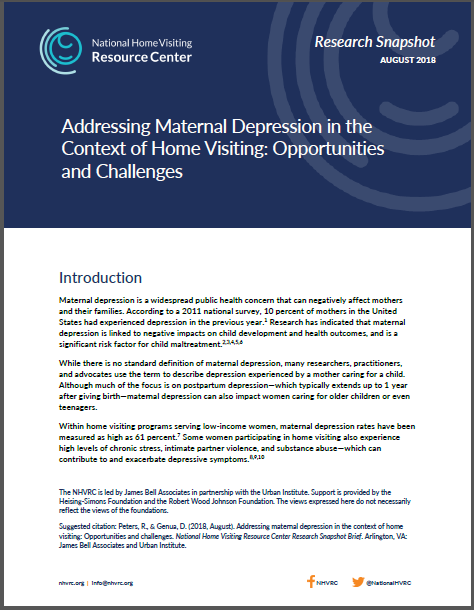
 Maternal depression is a widespread public health concern that can negatively affect mothers and their families. In 2011, a national survey found that 10 percent of mothers had experienced depression in the previous year. Within home visiting programs, maternal depression rates have been measured as high as 61 percent.*
Maternal depression is a widespread public health concern that can negatively affect mothers and their families. In 2011, a national survey found that 10 percent of mothers had experienced depression in the previous year. Within home visiting programs, maternal depression rates have been measured as high as 61 percent.*
Home visitors are in a unique position to help mothers experiencing depression, often by providing screenings and referrals to community services. Home visiting models can also add program enhancements such as Cognitive Behavioral Therapy to connect parents to professional treatment.
Our Research Snapshot brief combs the current literature to explore three questions:
- Why should home visiting programs address maternal depression?
- How can home visiting programs address maternal depression?
- What are the implications for research and practice?
We also share three promising approaches and an example of each in action. Read the full brief to learn about opportunities and challenges for better addressing maternal depression and improving home visitors’ perceived self-efficacy in this area.
Suggested citation: Peters, R., & Genua, D. (2018, August). Addressing maternal depression in the context of home visiting: Opportunities and challenges. National Home Visiting Resource Center Research Snapshot Brief. Arlington, VA: James Bell Associates and Urban Institute.
*See the full brief for references.